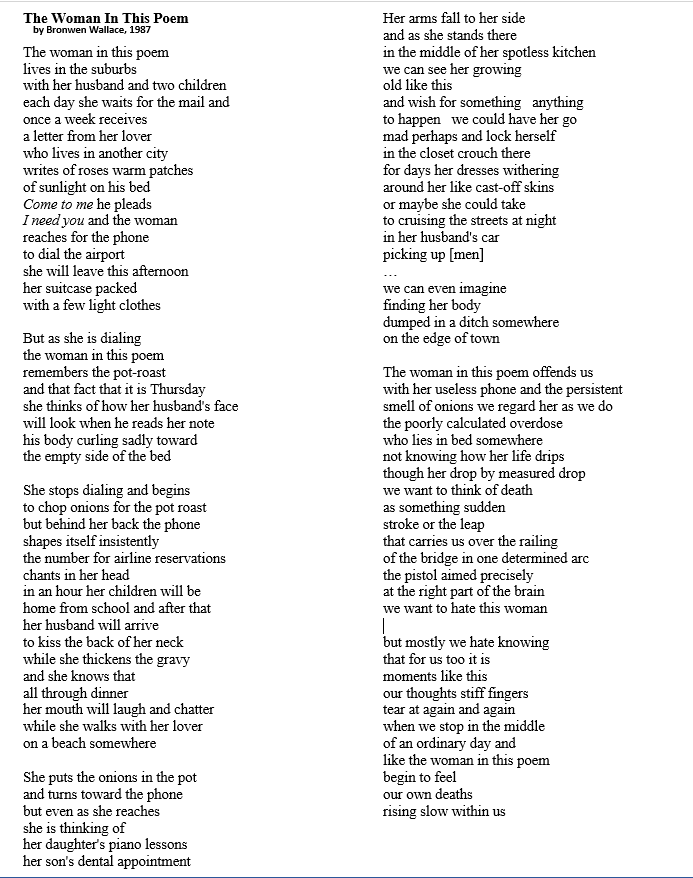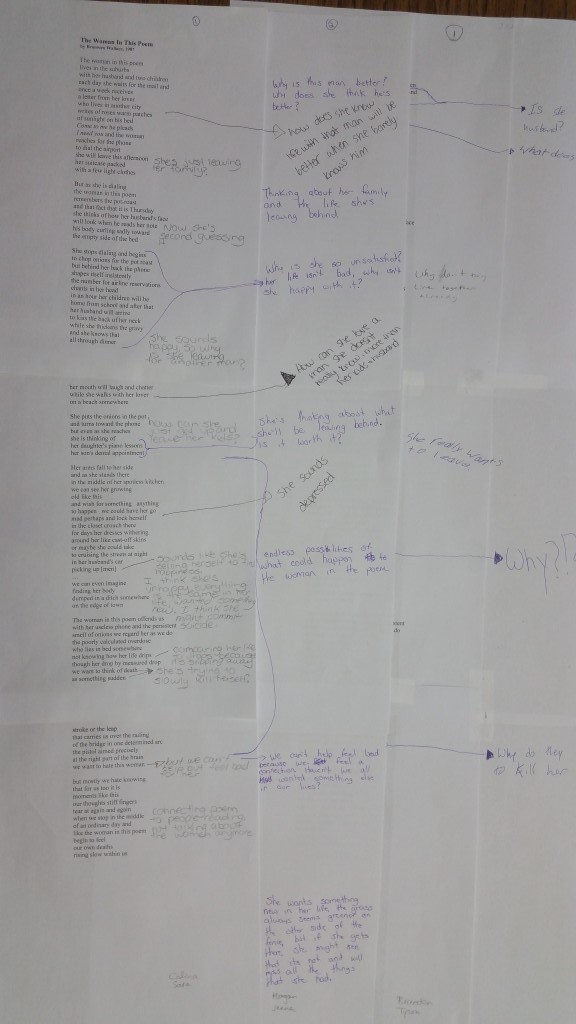Ap 29/16 Station D: What did you think of “The Woman in This Poem”?
There is a lot of variety in the types of poems written, differing by their format, attitude they approach a common topic with, word choice, etc.
The following poem will likely be a poem unlike any you’ve read so far in school ELA classes. It’s another sample of what poetry can be like.
Task- Either alone or with a partner you will:
- read through the poem
- add comments/questions/insights on the Right-Hand side of the poem. Underline or circle the part of the poem that triggers your comment and draw a line from it to your comment on the right.
- As others rotate through to this Station Activity, they will read the poem, read your comments left on the right, and then add their own comments/questions/insights either directly to the poem or to the comments left by the ones before.
- There will be additional slips of paper added to the right for these additional readings/annotations of the poem. (See image)
- What kinds of things can you comment on?
- if you can visualize what’s described in the poem, mention it and explain what you see
- if reading a phrase reminds you of something from another story, your own experience, something you’ve heard, write down that connection
- if there’s a phrase that infers/hints at something and you recognize it, identify and explain it
- if you’re surprised by something, write down what triggered your response and how why
- if you like a certain pairing of words together, using plays on sounds of words like Alliteration, Consonance, Assonance, Repetition, or Rhyme, identify and explain what you like about it
- if you have questions for the author – why did they word it this way, what are they hinting at here, is there a phrase missing at the end of this line, etc write them out
- if you develop predictions of how things will end, explain what you anticipate and why
- When you’re done, before moving to the next station:
- Individually (each in the partner group) needs to add a comment to this post to share what you thought overall of the poem you studied. Try to develop at least a 3 sentence response.
Below is an example of what it may look like as groups rotate through this station.


